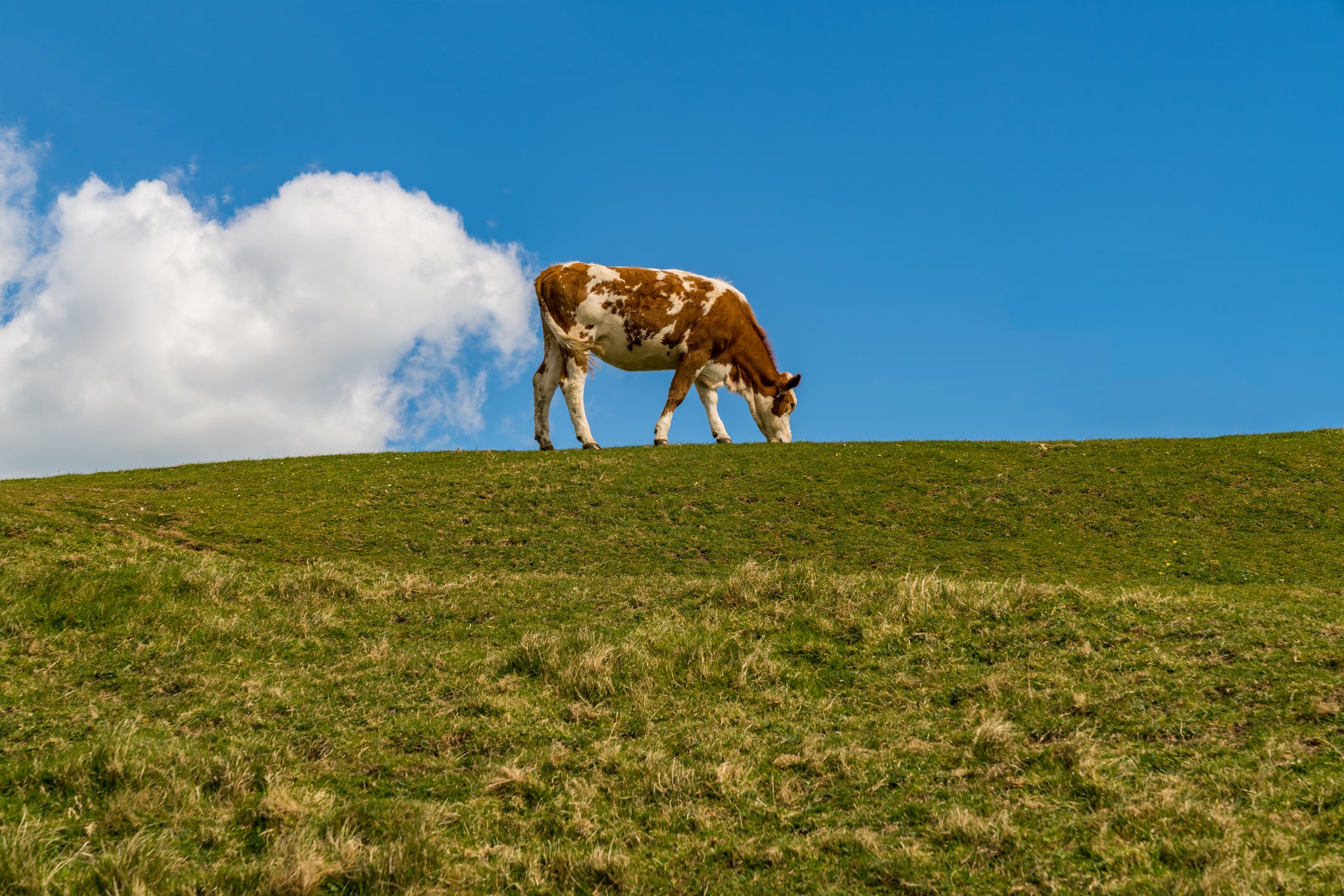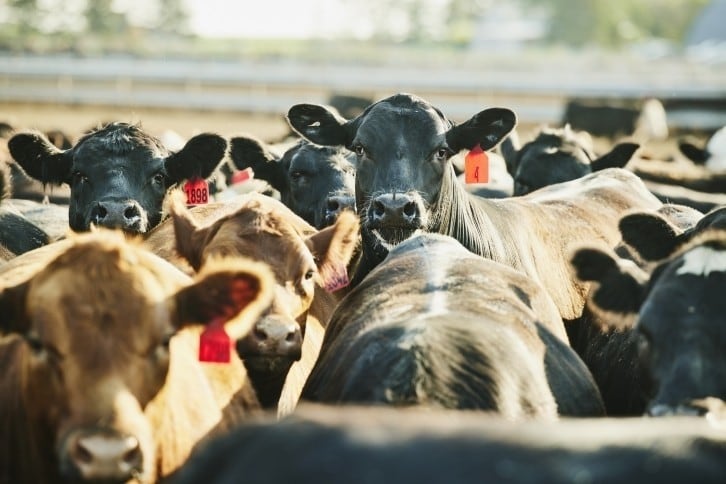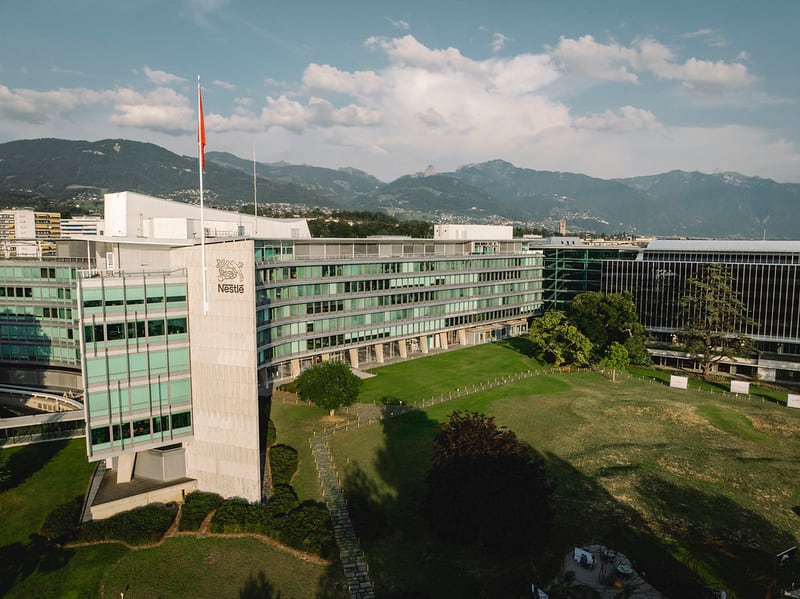Savencia, Agropur and Idaho Milk Products have become the latest dairy businesses to join EDF’s Dairy Methane Action Alliance, a voluntary initiative designed to drive methane mitigation efforts across the global dairy sector.
The trio join Danone, Lactalis USA, Bel Group, General Mills, Clover Sonoma, Kraft Heinz, Starbucks and Nestlé in committing to track and publicly disclose their methane emissions.
With a combined revenue of around $14.4bn for FY2024, Savencia and Agropur are two of the largest global dairy players by turnover. Ranked 13th and 17th respectively in Rabobank’s 2024 Global Dairy Top 20, the two businesses’ involvement in the voluntary initiative conveys the importance of methane mitigation.
The new members’ first step would be to measure and disclose their emissions before creating methane mitigation plans.
Methane forms a major part of dairy companies’ scope 3 (indirect) GHGs and is therefore crucial to address if businesses wish to meet their long-term emissions reductions targets.
Vrashabh Kapate, who leads the Environmental Defense Fund’s engagement with the dairy industry, told us: “We have been able to make significant progress in building a desire among companies to act. Whether at global conferences like COP or other significant events including New York Climate Week or World Dairy Summit, methane has definitely raised to the top of the agenda.”
“We’ve also seen that companies are now starting to realize the importance of methane action, especially in the livestock sector.
“Methane is a significant contributor to dairy supply chain emissions. It makes up the lion’s share of all farm emissions – and companies, as they get closer to their climate goals set for 2030 or 2050, are realising that methane is an opportunity that they have to address in order to meet those goals.
“It also makes up for a strong business case: methane action is essentially the emergency break that companies can pull to arrest the warming that we can see in the near term, but also to build supply chain resilience by helping farmers make the transition towards climate smart agriculture.”
How Bel Group, Danone and others are progressing
The voluntary partnership has brought to light the methane emissions of some of the world’s largest dairy companies. Since signing up to the initiative, Bel Group, Clover Sonoma, Danone, General Mills, Lactalis USA and Starbucks have disclosed their methane emissions and mitigation progress; with Nestlé also recently making it clear how much methane is linked to its ingredients sourcing and the progress the company has made to reduce its GHGs.
Below is publicly disclosed data from several of the Alliance’s dairy industry members.
“Companies in the Dairy Methane Action Alliance have made significant progress,” Kapate told us. “Back in 2023, Danone was the only dairy company that was publishing their dairy methane emissions data.
“Now, over half a dozen companies have public disclosures on methane. These companies are not just leading the way, but demonstrating that prioritizing methane as possible.”
But it’s clear that companies are at different stages of their mitigation efforts. “Companies are on a journey and we are encouraged to see that [they] are taking the first step and improving over time,” Kapate added. “This is going to be an iterative process.”
Standardizing how dairies measure and disclose their methane emissions is also key to making it easier for industry and the public to understand methane’s impact across the value chain.
“We are seeing that measurement technologies, or MRVs (measurement, reporting and verification platforms) are advancing over time,” Kapate said. “And so, there will be greater scope for improvement on standardizing some of these pieces as well. Eventually, we want the Dairy Methane Action Alliance’s principles of transparency and action-planning to be standard practise for the global dairy sector.
“Our goal is also to integrate some of these principles within industry best-practises and standards so that our greater goal of scaling action is met.”
Methane emissions sources
The EDF-led voluntary industry initiative also encourages dairies to measure and disclose where methane is coming from. This, in turn, can help inform corporate methane mitigation strategies as well as influence the development of new methane-busting solutions globally.
Typically, enteric fermentation and emissions from manure are the top sources of methane from dairy; with feed forming a smaller fraction.
However, feed additives such as Bovaer have been touted as solutions for enteric methane mitigation, with both Danone and Bel Group having trialed the dsm-firmenich product. Bel rolled out Bovaer to the majority of its farmer suppliers in Slovakia in 2023 and introduced it to French farmers last year on a voluntary basis, having offered a €10 premium per 1,000 liters of milk from H2 2024 to those who sign up.
Still, feed remains just one tool in the industry toolkit, Kapate insisted, and methane mitigation solutions designed for other areas ‘are definitely moving in the right direction’.
“Feed additives are one tool in the toolkit, and the toolkit has to expand,” he said. “We have challenges on on the manure front; there is also a lot more we can do on herd optimization. At a global scale, there are multiple levers that we can pull [to] enable farmers to drive faster climate action.”
Getting farmers involved is a matter of trust
Convincing farmers to get onboard can be challenging, even when financial incentives are in place. Fostering positive relationships with suppliers is crucial, Kapate thinks.
“The key pillar of effective stakeholder engagement is trust,” he said. “Any and all activities that you can take up to build trust is something that will get you to a less painful path.
“Companies have been working with these farmers for many years; these are not new relationships, and so there is already an element of trust in place.”
Dairy companies also need to educate farmers in terms of the risks and rewards of getting involved in methane mitigation efforts
“At the end of the day, dairy farms are businesses, and it has to make economic sense to them as well,” Kapate said. “There is a role for both companies as well as governments in stepping up to provide the right kind of incentives to help farmers make the transition.”
As for dairies who are on the fence about tackling methane: what are the options?
“My message to them would be [that] voluntary climate action is absolutely essential right now, and companies need to take the first step and improve over time.
“The political climate may change; the operating context may change; but the climate is definitely changing, and the risk of inaction is too high and the opportunity that methane mitigation provides is one that companies in the livestock sector can’t afford to miss.”




